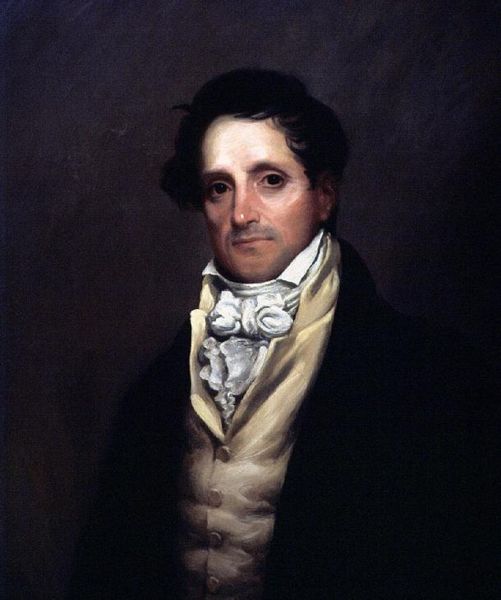<Back to Index>
- Inventor Denis Papin, 1647
- Writer Amalie Skram, 1846
- Secretary of the Navy and Writer James Kirke Paulding, 1778
PAGE SPONSOR

James Kirke Paulding (August 22, 1778 – April 6, 1860) was an American writer and, for a time, the United States Secretary of the Navy.
James Kirke Paulding was born on August 22, 1778, in the state of New York. Paulding was chiefly self - educated.
He became a close friend of Washington Irving. With Irving, Paulding proposed a literary project. As he described, "one day in a frolicsome mood, we broached the idea of a little periodical merely for our own amusement, and that of the town, for neither of us anticipated any further circulation." The result was Salmagundi — a continuation of which by himself proved a failure.
Along with Irving, Paulding was associated with the "Knickerbocker group", a group which also included William Cullen Bryant, Gulian Crommelin Verplanck, Fitz - Greene Halleck, Joseph Rodman Drake, Robert Charles Sands, Lydia Maria Child, and Nathaniel Parker Willis.
Paulding's other writings also include The Diverting History of John Bull and Brother Jonathan (1812), a satire, The Dutchman's Fireside (1831), a romance which attained popularity, a Life of Washington (1835), and some poems. In the decade before Washington Irving and James Fenimore Cooper achieved popular success, Paulding experimented in every genre in an effort to forge a new American literature. Thereafter, his outstanding contributions were in the novel and in a stage comedy. Koningsmarke (1823), which he began as a spoof of Walter Scott's historical romances, took unexpected hold of his imagination and became a well - turned novel, notable for its portrait of an old black woman that anticipates William Faulkner and for its sympathetic yet unromanticized depiction of the Indian. Lion of the West, selected in a play competition in which William Cullen Bryant was one of the judges, presented a cartoon of Davy Crockett; it was the most often performed play on the American stage before Uncle Tom's Cabin, and an altered version enjoyed success in London. Paulding's View of Slavery in the United States (1836) was a comprehensive defense of both Black slavery and America's claim to be a bastion of liberty against the attacks of abolitionists and European critics.
Among Paulding's government positions were those of secretary to the Board of Navy Commissioners in 1815 - 23 and Naval Agent in New York in 1824 - 38. President Martin Van Buren appointed him Secretary of the Navy in June 1838. As Secretary, he was a conservative figure, whose extensive knowledge of naval affairs was balanced by notable lack of enthusiasm for new technology. He opposed the introduction of steam propelled warships declaring that he would "never consent to let our old ships perish, and transform our Navy into a fleet of (steam) sea monsters." Nevertheless, his tenure was marked by advances in steam engineering, wide - ranging exploration efforts, enlargement of the fleet and an expansion of the Navy's apprenticeship program.
Paulding left office with the change of administrations in March 1841, returned to literary pursuits and took up agriculture. He died at his farm near Hyde Park, New York.
USS James K. Paulding (DD-238) was named in honor of Secretary of the Navy Paulding. Paulding's story, "The Politician" contains a maxim that is often attributed to Samuel Gompers: "Reward your friends and punish your enemies." The story appears in his collection, Tales of the Good Woman, by a Doubtful Gentleman.